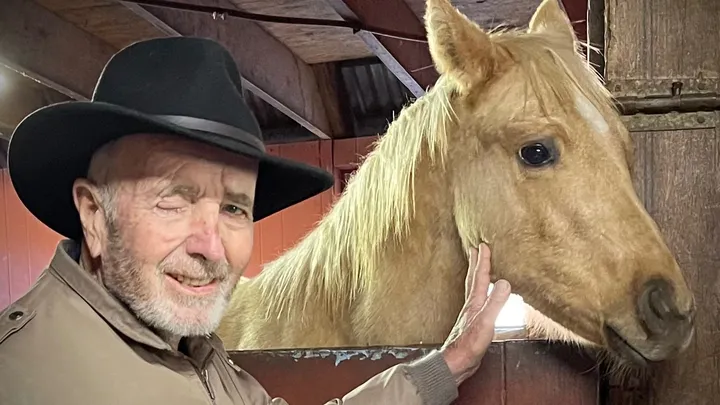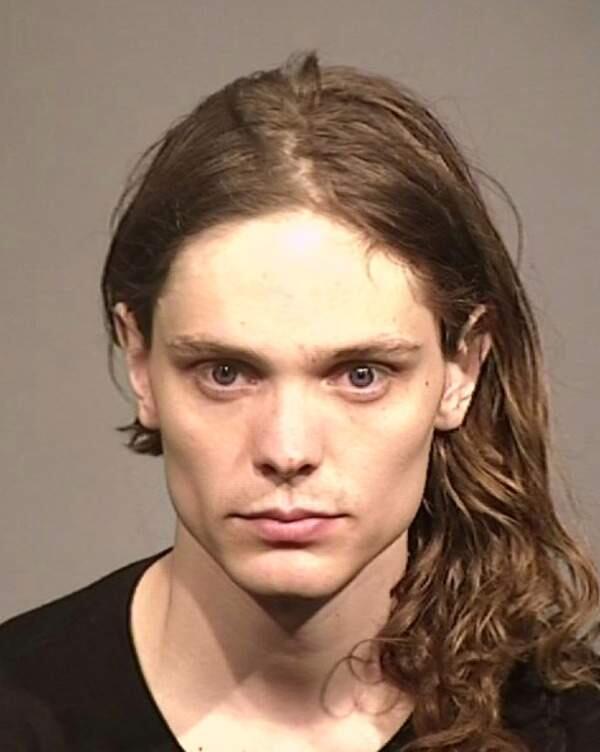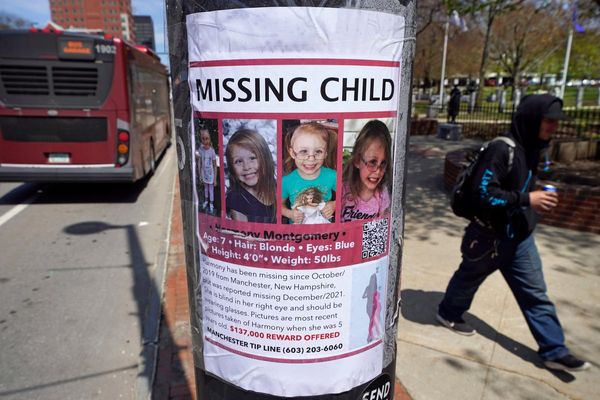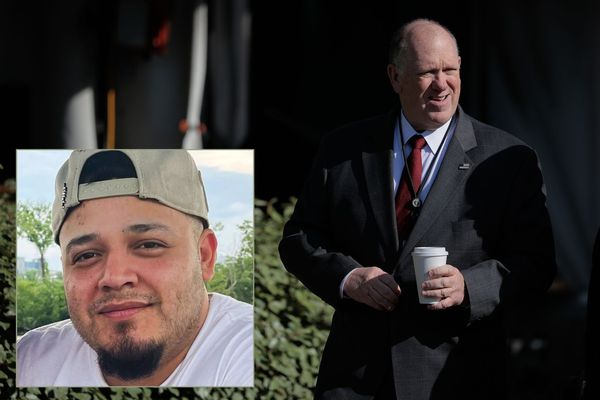
A murder case linked to the radical vegan group known as the 'Zizians' took a bizarre turn Tuesday when the prosecution's best surviving witness claimed to have spent decades doing pro bono undercover intelligence work for the U.S. government.
Patrick McMillan, 81, gave evidence in court on Tuesday in Fairfield, California, about the November 2022 day he said he found his "best friend" and landlord Curtis Lind on his doorstep with a samurai sword stuck through his chest.
"I need a medic, an ambulance, immediately, immediately," McMillan said in 911 calls played back for the court. "He’s bleeding badly.... you'd better hurry. He's gonna die.”
But in a long day of pre-trial testimony, McMillan often struggled to remember details and sometimes contradicted his previous statements — saying that his memory had been damaged by repeated strokes and heart attacks.
He also testified that, starting in 1975, he had worked as a "contractor" for the U.S. intelligence community without pay except for his expenses, although he said he had no way to prove this and was not allowed to reveal the details.
"Could get me in serious trouble," he told the judge.
Solano County prosecutors have charged Alex Leatham, 29, and Suri Dao, 24 with murder and attempted murder over a bloody confrontation with Lind and Emma Borhanian at his ramshackle trailer yard in nearby Vallejo in November 2022, where they had been living without paying rent for roughly two years. ??

It is one of a series of cases associated with the so-called Zizians, a loose, enigmatic network of radical vegans haunted by fears of an AI apocalypse, which some — including McMillan — describe as a cult.
Prosecutors allege that Leatham, Dao and their friend Borhanian, 31, attacked Lind in the early hours of November 13, forcing him to shoot Leatham and Borhanian in self-defense. Borhanian was killed, and now prosecutors say Leatham and Dao were responsible for her death.
Yet the case suffered a heavy setback this January when Lind, the only actual eyewitness, was stabbed to death by a masked attacker.
Prosecutors have charged 22-year-old Maximilian Snyder, whose ideals were reportedly influenced by the group’s namesake Ziz LaSota, with Lind’s murder.
‘You'd better hurry. He's gonna die’
Though Leatham and Dao’s case has not formally gone to trial, lawyers were allowed to collect early testimony from McMillan in December 2023 and again this week due to his age, ongoing struggle with cancer and fading memory.
The latter problem was evident Tuesday as McMillan repeatedly told the court he could not recall things he had previously testified about, at times outright contradicting his past self.
"I've had eight strokes and nine heart attacks. After my last stroke I lost most of my memory, not all of it. So I can't really tell you," he said, when asked how long he had lived on Lind’s property.
"I can't tell you where my kids are. I don't know," he said later, when asked what kind of memories he’d lost.
McMillan later clarified that his last stroke had come before the incident with Lind, and that he had not lost the ability to form new memories.
He insisted he could clearly remember Lind's injuries: a sword sticking one foot out of his upper chest, a flap of skin hanging down from above his right eye and lots of blood.
"He was bleeding like a stuck pig. I mean, it was just gushing," McMillan said.
He said Lind had knocked on his door on the morning of November 13 and shouted at him: “They’re killing me! There’s knives sticking out of me!”
McMillan did not witness the fight himself, nor what led up to it. Still, he said Lind had told him about two occasions in which a group of tenants including Borhanian had behaved in ways Lind found threatening before November 13.
Prior to that, McMillan said, he had only occasional encounters with the group, who lived in "moving vans" and an airport-style shuttle bus and often went naked or topless indoors.
“Oh yeah, the cult people,” he said when asked about the group. He said he thought of them as a “cult” because they were all transgender, “all together” and all seemed to speak through one tenant, Gwen Danielson.

Asked if he knew any of the group's names apart from Borhanian and Danielson, McMillan mentioned "only one": "Ziz".
He said he did not recognize either Leatham or Dao as people who were on the property.
The courtroom heard recordings 911 calls made by McMillan around 2 a.m. on November 13, where he told dispatchers that Lind was being attacked and threatened by people banging on the side of his trailer. The police came, he said, but did nothing.
The court then heard two more 911 calls from around 7:30 a.m., after the fight. "A man has been stabbed many times. He's bleeding to death,” McMillan said in the final call.
Defense lawyers probe McMillan’s colorful past
Throughout the hearing, Dao sat silently on a Zoom link, while Leatham could only be brought into the courtroom for short periods due to her chants of protest.
"The police have repeatedly sexually assaulted me. My naked breasts are not for the police to touch," she recited at high speed. "Officer Larry Duffield said I deserved to be shot for being transgender while he had a gun and I was in chains."
That was a reference to Leatham's civil rights lawsuit against Solano County, in which she alleged that prison officers had "over and over again" pinned her to the floor, cut her clothes off and touched her breasts in what they called "forcible cross-gender strip searches" as well as subjecting her to other humiliating treatment.

After prosecutor Ilana Shapiro asked her questions, Leatham and Dao's defense quizzed McMillan about inconsistencies in his testimony, such as his claim that he had climbed a ladder to see evidence that the group was harassing Lind despite also saying he could no longer climb ladders.
“Do you notice that your answers are shifting depending on if [the prosecution] is asking versus when someone else is asking?" asked Dao's lawyer Brian Ford. The judge overruled his question as "argumentative".
The strangest exchanges involved McMillan's background. McMillan claimed he had done "research" for unnamed U.S. intelligence entities, mostly working "from home", though repeatedly demurred giving details.
"I'm not even supposed to explain [that I can't explain]," he said at one point. "Well, you said some stuff about it last time you testified," noted the judge. "I don't know what I was thinking," answered McMillan.
Defense lawyers also alleged various prior criminal convictions, though he vociferously denied at least one of them. He said some of his arrests were necessary to build up his undercover identity.
"They didn't pay me," he insisted. "You did it for free? From 1975 to 2005?" asked Ford, seemingly incredulous. "I got expenses," said McMillan.
Ford then contended that McMillan's undercover work proved he was "good at lying "
"I never lied," McMillan responded. "They asked a question, I asked another question."







